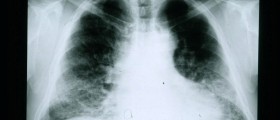
Systemic yeast infection, also known as opportunistic infection, is a medical condition in which Candida penetrates and affects the deeper areas of the body. Systemic yeast infection usually affects people with weak immune system whose body is simply not capable of fighting against the fungi. This is a serious infection, very delicate, hard to detect and eradicate.
There are three levels of candidiasis classified according to the severity of the condition. The first one is an occasional yeast infection such as oral thrush, vaginal candidiasis etc. The second one is chronic or recurrent candidiasis probably related to more serious underlying problems (impacted immune system). And finally, systemic yeast infection affects the entire body and is responsible for the whole variety of symptoms such as fatigue, lethargy, headache, dizziness, sensory disorders, muscular pain, breathing disorders, gastrointestinal problems etc.
The infection is typically characterized by the spread of fungi into many organs and organ systems including the digestive tract, respiratory system, eyes, liver, esophagus, skin and blood.
What Causes Systemic Yeast Infection?
Systemic yeast infection typically affects people with weak immune system. The body is not able to fight against these infective agents and they spread through the entire body and start to multiply uncontrollably. The condition is common among people suffering from HIV/AIDS, cancers and may also affect those on prolonged immunosuppressive treatment (such as patients who have had an organ transplantation).
There are several more factors that contribute to the infection. They include usage of antibiotics for a longer period of time, hormonal changes, diabetes and an elevated blood sugar levels, stress and deficient diet. However, none of the mentioned factors can actually be a contributor of the systemic yeast infection unless the immune system is damaged and does not function properly. So only in case the immune system is weak and cannot help the body defend itself from the infection systemic candidiasis occurs.
What Are Dangers of Systemic Yeast Infection?
Systemic yeast infection can be very serious. Sometimes it is hard to detect and once it is confirmed it is generally hard to eradicate. Toxins produced by the fungi are potentially damaging to all organs and organ systems in the body. The problems usually start inside the gastrointestinal tract although toxins also cause serious damage to the brain and the liver. Patients do not feel well and develop many unusual symptoms. The sooner the infection is confirmed the better the results achieved with systemic antifungal medications are. Unfortunately, in case the immune system is extremely weak in spite of the appropriate treatment systemic yeast infection can be lethal.

















Your thoughts on this
Loading...